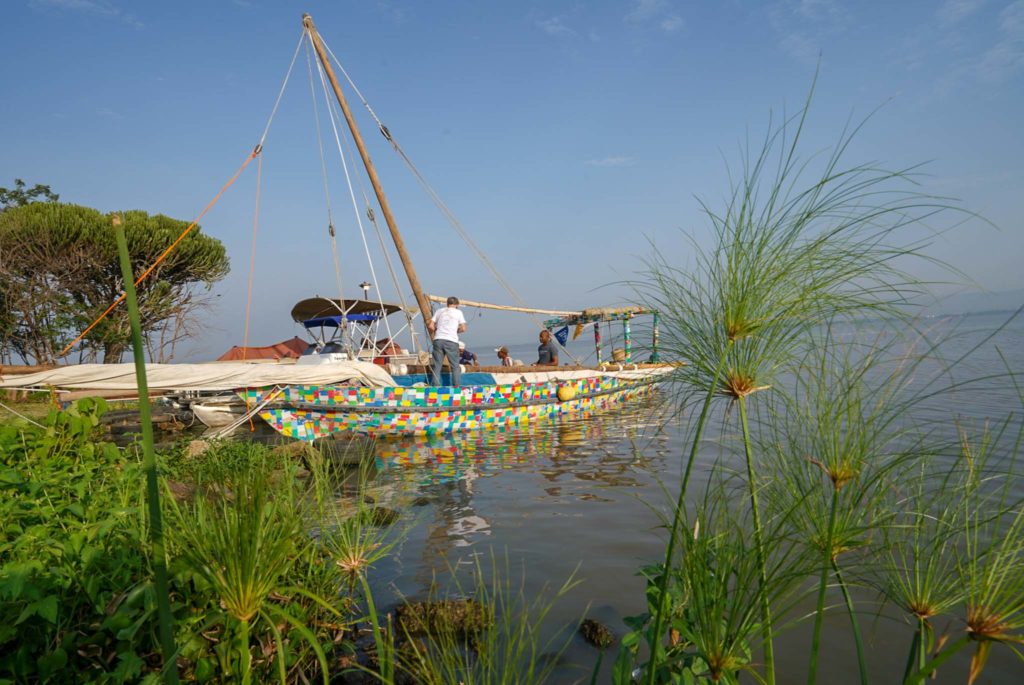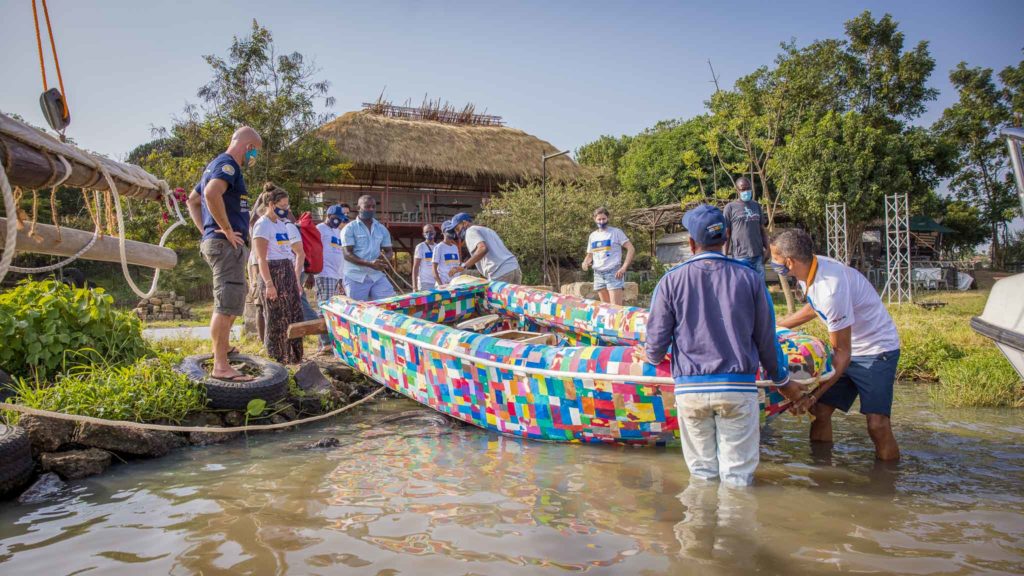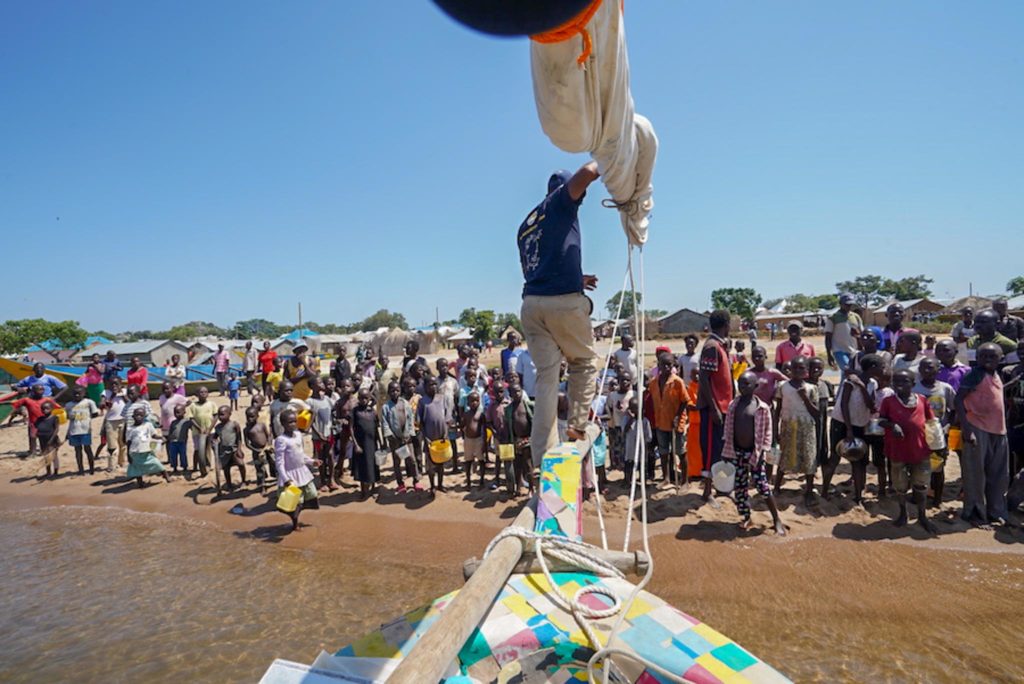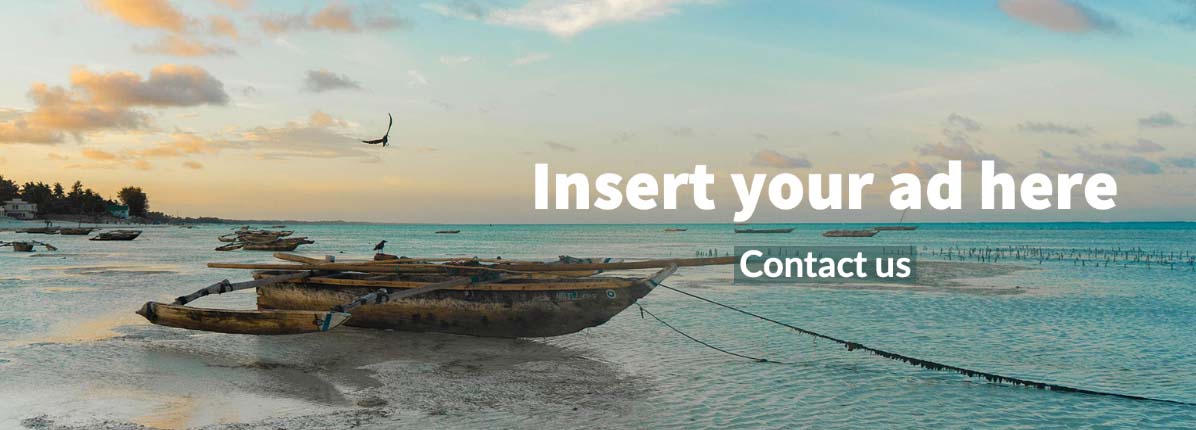The ship The Flipflopi measures no less than 9 meters (30 feet). Maybe that is not a striking aspect, but the construction material definitely is: the ship is made entirely from recycled plastic. Stranded slippers, bags and bottles once again set out to water facing a new challenge: sailing around Lake Victoria in a month to raise awareness around single-use plastic.
“Africa is said to have only beautiful beaches. Natural beauty, pearl white, a feast for the eye,” Dipesh Pabari commences. “But many of those beaches are covered with discarded plastic.” With this in mind, Pabari started The Flipflopi project, together with two companions, Ben Morison and Ali Skanda. “It is a genuine passion-project. We want to make as many people as possible aware of the plastic problem.”
It took the men nearly two years to build the 9 meter Flipflopi-ship in Lamu. “In the beginning, we failed constantly. The boat wouldn’t float or it would break.” The Flipflopi was finished after a lot of trial and error: then the ship was ready to sail around Lake Victoria. “It is incredibly solid and we have no problems on the lake at all.” Only as the ship returns to its berth in the port of Lamu, some cracks appear. Pabari chuckles: “This says more about the quality of the roads, here in Kenya, than about the Flipflopi.”

Start in Kisumu
The Flipflopi crew starts the trip around Lake Victoria from Kisumu, Kenya. “This is where we organize activities with musicians, artists and recycling workshops for a whole month,” Pabari proudly states. From this point, the ship will sail to fifteen locations around the lake and some of the islands will be visited. “Everywhere we moor, we create big events. From bazaars where the locals exhibit and sell their recycled items, to workshops, discussions with local politicians and creating art projects of plastic.”
Pabari doesn’t want to inspire young people only: “The plastic problem covers all ages. Yes, young people have the future, but we also want to reach adults. They set an example and could change their ways and habits even now.” Pabari sees Africa grow and hopes to be able to steer it into the right direction. “We are now getting to a point where we can get ahead of the over-consumption of plastic. If we can turn the tide in time, future generations will be able to live in a beautiful, clean Africa.”
The ship had to be a dhow
The ship, The Flipflopi, owes its name to the thousands of flipflops that form the bottom. The ship was constructed as a dhow-boat deliberately. “The dhow is a real symbol for the whole of Africa. These ships have been sailing our waters for thousands of years. It is a binding symbol that covers many countries.” Co-founder Ali Skanda comes from a family that made dhows day in day out. His expertise helped to build the Flipflopi.
The team has realized that their ship is doing well, even at sea, and wants to share the technology with everyone. “During our journeys we teach our techniques to local fishermen. That will enable them to also build ships and parts out of plastic.” In the course of this month, the organization will also publish a toolkit, so everyone can build ships from recycled plastic.

Researchers and artists
On the route on the waters of Uganda and Tanzania, the crew also works on water research on the lake. It is the first time that research is done on the quantities of microplastic in the surface water and deeper waters of Lake Victoria. “Huge amounts of data were collected. The researchers are very excited, but now they have to work very hard to show results.” The results are currently being analyzed in cooperation with the universities of Dar es Salaam and Northumbria.
Also, famous artists are playing their part: “Kenyan rapper, Juliani, joined us to discuss things with people around the lake” The rapper has made statements about recycling and single-use-plastics before. “His presence means a lot to the people. The greatest thing is, on the basis of this trip, Juliani wrote a song about plastic pollution; we will bring it out together.”
Battle against single-use-plastic
“Although there are laws and regulations in Uganda, Kenya and Tanzania, restricting the plastic pollution, still we are here to take action for plastic awareness,” says Pabari. In the field of plastic legislation, the three countries find themselves at different stages. In Uganda, the proposed Act still hasn’t been adopted. “In Kenya and Tanzania, although the laws have been adopted, the regulations are showing several slipups. For example, in protected areas in Kenya you can still find many plastic straws.”

“Our visit to Uganda has revived the plastic Law.” Sylvia Nagginda, Queen of Buganda, an historical kingdom in Uganda, even personally signed an important petition: “Her signing this single-use-plastic ban petition means it will be brought to the attention of the right people. That is our goal exactly.” At this moment, the lawyers of Flipflopi and the Ugandese authorities are looking together as to how a plastic ban can actually be introduced.
The next adventures
Due to setbacks, the future plans of The Flipflopi are further away than planned. “We recently had a fire in our ship yard. The Flipflopi was unscathed, but much of the machinery was affected. We are currently rebuilding this, but it has caused us to postpone our plans.” The shipbuilders are working on a new Flipflopi, that will be twice as big. “The new one will be over 20 meters (60 feet) long and must be able to travel even greater distances. We’re not sure yet where we’re going, but it is obvious that our battle has not ended yet.”


Recent Comments